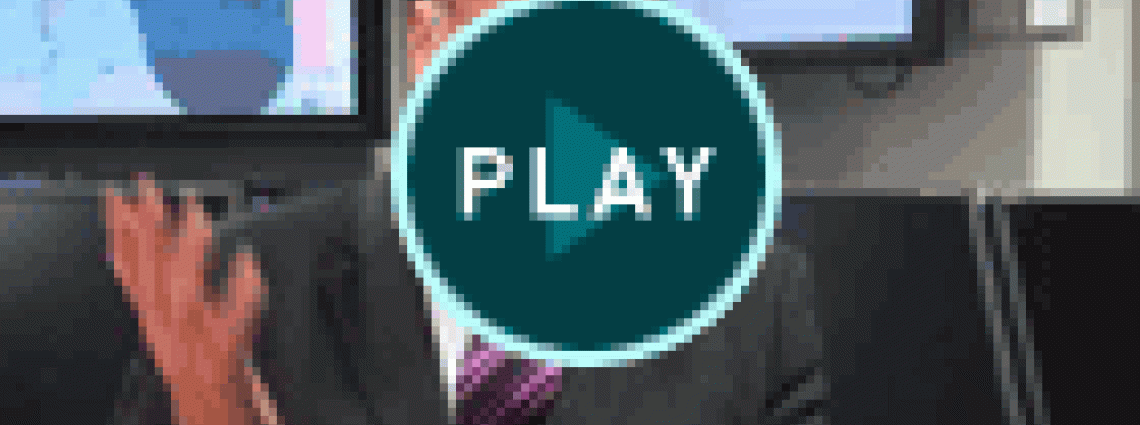The CTBT must come into force as soon as humanly possible, Gareth Evans says in Vienna
Evans forecast: U.S. CTBT step not coming this year

Video Interview with Professor Gareth Evans on Eliminating Nuclear Threats. Watch it on CTBTO's YouTube Channel.
U.S. CTBT Ratification “not the only game in town”
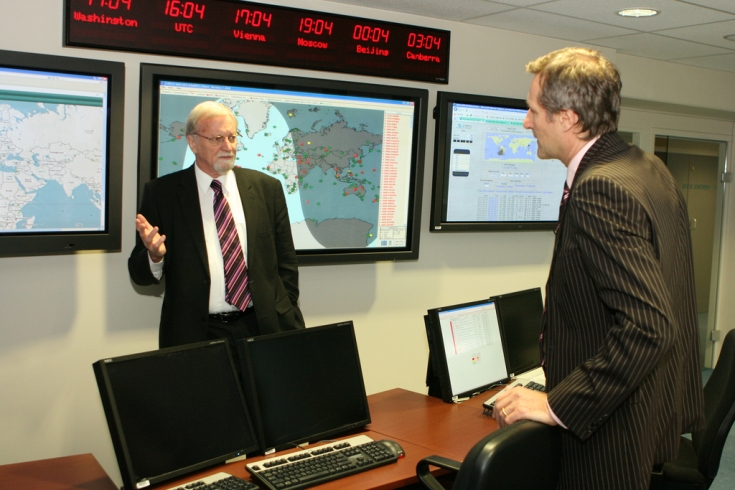
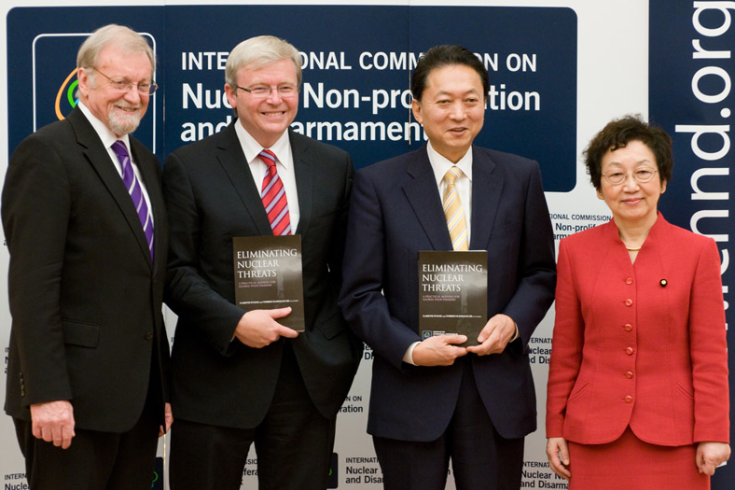
Gareth Evans, Co-Chair of the ICNND, Kevin Rudd MP, Prime Minister of Australia, Dr. Yukio Hatoyama, Prime Minister of Japan, and Yoriko Kawaguchi, Co-Chair of the ICNND.
2010 to determine whether we move forward
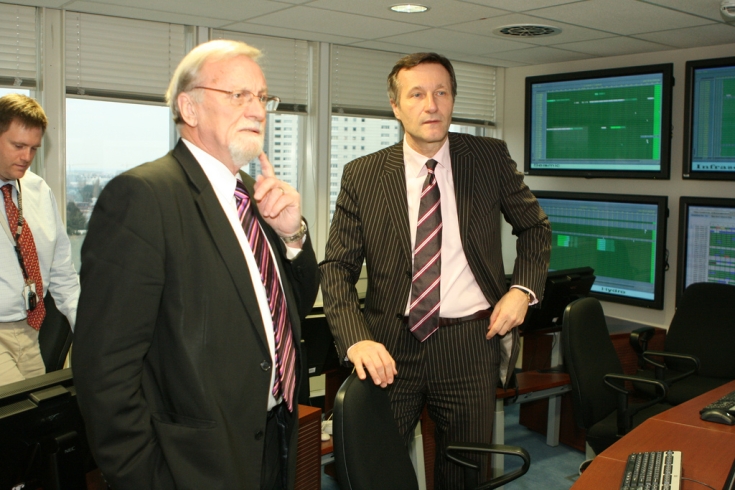
Dr. Evans with Tibor Toth, Executive Secretary of the CTBTO.
Successful NPT Review Conference will require a lot of effort
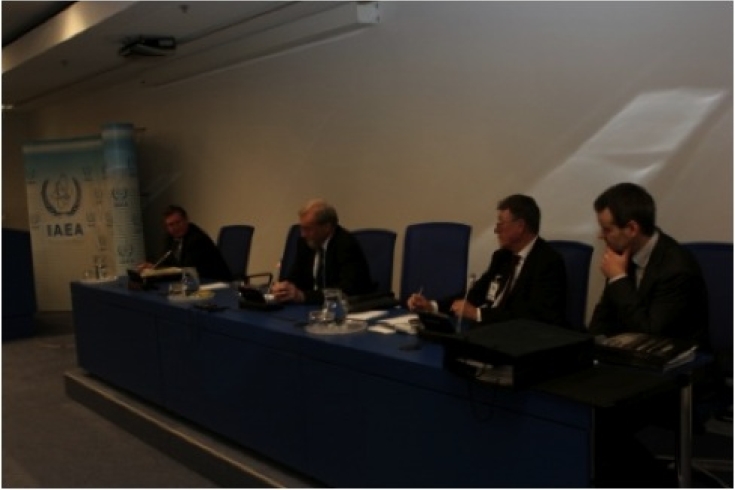
"Consensus will require an awful lot of buy in," Evans told a press conference in Vienna on 5 March 2010.
START treaty passage crucial
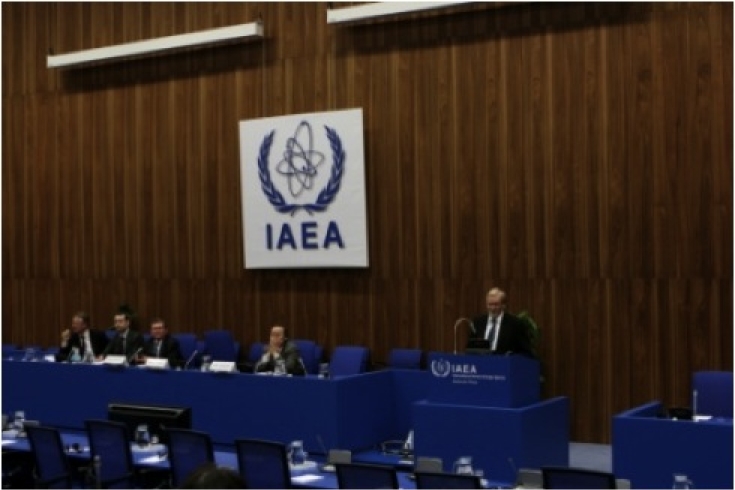
Gareth Evans presenting the ICNND report to Vienna diplomats.
Nuclear Posture Review – an important indicator of where the world is going
Japan’s significant doctrinal shift
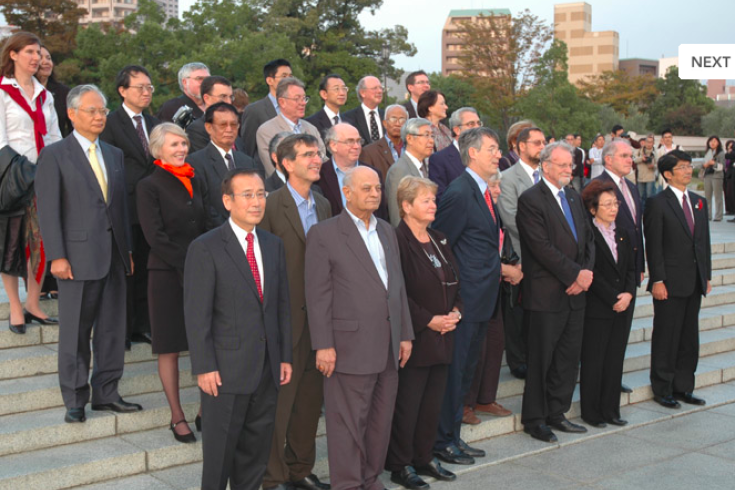
Dr. Tadatoshi Akiba, Mayor of Hiroshima, with the ICNND Commissioners and Advisory Board Members, laying a wreath at the Hiroshima Peace Park.
Intellectual change on the way
15 Mar 2010
